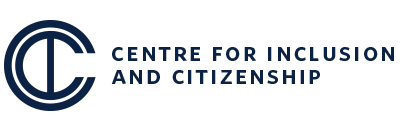
The Vulnerable Persons Standard (VPS) is an evidence-based tool to guide policy and practice for Medical Assistance in Dying (MAiD). It was developed by 40+ Canadian experts in law, medicine, ethics, social policy and human rights and is built upon five core principles which form the basis for this submission.
STATEMENT OF VPS POSITION
The VPS opposes expansion of Track 2 MAiD to persons on the sole basis of a mental disorder (MD-SUMC). Such an expansion would perpetuate the long-standing history of discrimination in Canada against people with mental disabilities contrary to section 15 of the Charter. We urge government action to provide the means to alleviate suffering and prevent suicide for a Charter-protected group already disproportionately affected by suicide. Invoking equality to justify this expansion is a backward step toward formal equality that was rejected by the Supreme Court of Canada more than three decades ago.
MANDATE FOR THIS REVIEW
In accordance with its original mandate, the Special Joint Committee on MAiD (AMAD) must review the merits of the mental illness exclusion, and consider whether or not it should be struck from the law as was pre-determined in 2021. While ‘system readiness’ appears to have become the narrow focus of current study, the Committee must not abdicate its broader mandate to determine if the mental illness exclusion should be maintained and the sunset clause overturned.
APPLYING THE STANDARD
1. Equal Protection
● The constitutional guarantee of substantive equality takes into account historical patterns of mistreatment, social conditions and discrimination and stigma. These crucial contextual factors shaping the experience of persons with “mental disorders” are well documented, pernicious and toxic, and must be explicitly addressed to guard against perpetuating disadvantage. This requires acknowledging that:
-
While not all persons with a mental illness experience suicidality, most persons(an estimated 90%) who experience suicidality have a mental illness;
-
The inherent contradiction between societal commitments to suicide prevention and MAiD expansion to MD-SUMC remains unresolved;
-
Canada’s framework for suicide prevention has proven ineffective;
-
The best way of reducing suicide is to make methods of suicide difficult to access;
-
There is no empirical authority to the foundational claim that purports to distinguish between suicide and MAiD;
-
There has been no interrogation of the prevalence of adverse childhood experiences, violent trauma, generational colonial violence, gender/race-based violence and ongoing systemic oppression among MAiD requesters;
-
There is no pan-jurisdictional commitment to collect and report robust data measuring adverse impacts vis-à-vis Charter-protected populations, and no demonstrable commitment to initiate immediate remedial social investments, rather than ineffective safeguard tweaking; and
-
MAiD for MD-SUMC would advance the “architecture of inequality” in society. Canada has not prioritized long-standing conditions of stigma, social isolation, deep inequality and associated suicidality.
2. End-of-Life Condition
● The abandonment of “reasonably foreseeable natural death” (RFND) as an eligibility threshold for MAiD makes disability the unique and necessary condition for premature death at the hands of state actors. Canada has failed to mitigate associated risk of perpetuating disadvantage in MAiD, healthcare, and society at large.
● Opinion amongst psychiatrists and non-psychiatrist physicians remains deeply divided regarding MAiD for MD-SUMC. Debates around irremediability, for example, expose that psychiatrists cannot judge with any accuracy if a particular patient fits that category. This is the case in part because the trajectory of mental illness is conditional upon access to care and the social and economic conditions necessary for treatment to be effective.
3. Voluntary and Capable Consent
● Discrimination and systemic injustice severely limit the “architecture of choice” within which consent to MAiD is expressed.
● The Expert Panel recommends providing access to MAiD – including MAID MD-SUMC -to persons “in situations of involuntariness.” Rates of mental illness and suicidality are much higher among justice-involved people, and incarceration exacerbates risk of both. Providing the choice to die while limiting liberty more broadly, is coercive.
● External pressures render marginalized populations more likely to experience mental illness and elevated suicidality rates. In Canada, indigenous persons are overrepresented in prison populations. Indigenous communities have been under-consulted on MAiD, and there is a suicide crisis in Indigenous communities.
● European data further points to a gendered pattern in requests for assisted suicide on the basis of mental illness.
4. Assessment of Suffering and Vulnerability
● Vulnerability does not reside with the individual patient/MAiD requester, as presumed in current practice. Vulnerability is found in the social context in which persons are located and in which their suffering is rooted. This is not within the expertise of medical practitioners and requires a much broader set of practices and inquiry. Canada’s MAiD regime must be informed by the social determinants of health.
● The suffering associated with mental illness is frequently socially determined. Social determinants impact risk of illness, access to services, and the outcome of treatment. Poor and disadvantaged populations are most affected. Canada has not demonstrated capacity to promote wraparound support, or to truly address the suffering of this population.
● Canadian Armed Forces (CAF) members and veterans having sustained an operational stress injury experience trauma, face constraints in accessing mental health treatment, and die by suicide at disproportionately high rates. Canada has not demonstrated effective processes to protect veterans under the current law or an expanded law.
5. Arms-Length Authorization
● People with a “mental disorder” often have a complicated relationship with medical professionals and systems of authority. While the Expert Panel has recommended some form of prior review for MAiD requests, the VPS emphasizes that prior review mustbe multidisciplinary and oriented toward the goal of exploring and addressing suffering. It is imperative that any such process be person-centred and voice-affirming. Burdensome and alienating processes of review need not be the default model, where practices and concepts from restorative justice, for example, may be adapted instead.
In view of the evidence above, we conclude that Canada must not proceed with MAiD for MD-SUMC.
Sources can be accessed at: https://www.vps-npv.ca/bibliography
